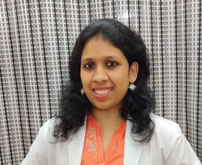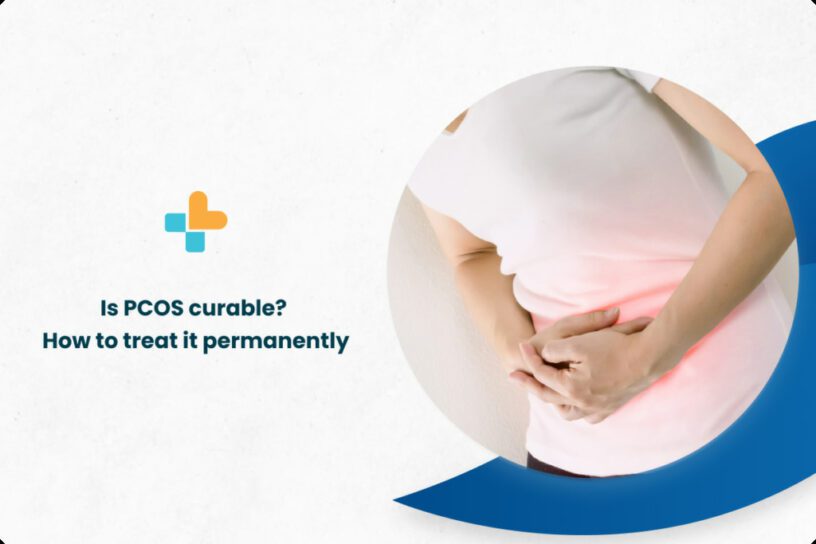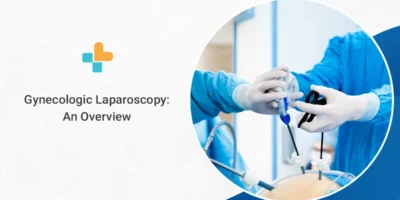In today’s stressful and busy world, leading a poor lifestyle has almost become the norm. A bad diet and lack of self-care lead to several health issues, including hormonal disorders. Polycystic ovary syndrome (PCOS) is a very common hormonal disorder among women of reproductive age. However, one shouldn’t worry as it is usually not a life-threatening condition.
Are you one of those women who’s wondering “can you get pregnant with PCOS?” OR if “can PCOS be cured permanently?” The blog will discuss PCOS in detail, clearing every doubt of the readers, especially if PCOS is dangerous.
What Is PCOS?
Whenever a woman’s ovaries or adrenal glands create extra male hormones than usual, it results in polycystic ovarian syndrome (PCOS). Cysts develop on the ovaries as a result of the ailment. Although the cysts aren’t really hazardous, an instability in hormone levels may result from them.
Symptoms Of PCOS
In case you’re wondering if you’re suffering from PCOS, go through the below-mentioned symptoms to get a clear idea:
- Falling and thinning of hair.
- Pronounced weight gain around the belly.
- Absent or inconsistent periods.
- Oily skin and severe acne.
- Headaches.
- Frequent episodes of depression and mood swings.
Is PCOS Dangerous?
Several long-term risks are associated with PCOS, hence women suffering from it must be extra cautious. Some of the complications include:
- Cardiovascular risks.
- Endometrial cancer.
- Obstructive sleep apnea.
- Infertility.
- Type II diabetes.
- High blood pressure and high cholesterol.
What Causes PCOS?
Despite lots of research, what causes PCOS hasn’t been found. The most common hypothesis is genetic reasons since lots of PCOS symptoms are hereditary and found in other family members.
Many women with PCOS have obesity as well as insulin resistance. Some factors have been observed to increase the risk of PCOS. For example:
- Poor dietary choices.
- Lots of toxin accumulation in the body.
- Weak immune system.
PCOS Diagnosis
Being a complex disease, PCOS has lots of different symptoms that vary from person to person. This makes the diagnosis of PCOS a tad bit difficult.
Usually, the diagnosis of PCOS is confirmed when two of the following conditions are fulfilled:
- Irregularity of periods or totally stopped menstruation.
- During an ultrasound scan, a polycystic ovary is observed. Ovaries are enlarged with the presence of cysts.
- High levels of androgens were detected in the blood upon testing. Additionally, common symptoms such as acne, hair loss, weight gain, etc. are observed.
Ultrasounds for women under the age of 20 are not advised and hence isn’t included under PCOS treatment for unmarried. It implies that for PCOS to be diagnosed, both hyperandrogenism, as well as irregular periods, must be evident.
Natural Remedies & Diet For PCOS
Apart from the medicinal alternatives, there are many natural ways to control PCOS. The list below says it all:
- Losing weight is great for a start. Research suggests that losing approx 5% of weight may help in dealing with PCOS symptoms.
- As a part of the losing weight strategy, exercising consistently is a must. A minimum of 150 minutes of exercise each week can help you maintain weight balance and lower stress. Additionally, because calories are continually burned off, it is possible to manage insulin levels.
- Looking after the diet is quite necessary. Firstly, oily and junk food items must be cut out completely. One should avoid coffee since it can enhance estrogen levels and trigger hormonal imbalances. Carbohydrates should be taken in moderation, since they may spike insulin levels.
- It is advised to consume a PCOS treatment diet rich in proteins and fibers. Some of the food items rich in fiber are avocados, beans, lentils, sprouts, etc. Magnesium-rich food items such as bananas, almonds, and spinach must be included in the diet for better results.
- It’s a wise idea to prefer plant sources of proteins, such as soybean, tofu, quinoa, peanuts, etc.
Treatments For PCOS
Lots of women ask how to cure PCOS permanently. Unfortunately, PCOS cannot be permanently cured, however, one can control the symptoms and lead a healthy life.
Some common ways to deal with PCOS are:
- In the case of mild cases, following a proper diet and exercise regimen is enough to keep it under control.
- Periods may be induced using contraceptive pills or progesterone tablets (given in every 2-4 months).
- If the patient has developed type II diabetes, often Metformin is prescribed.
- For fertility issues, Clomifene is prescribed to induce ovulation.
- When there’s no response to medicine, often a procedure known as laparoscopic ovarian drilling (LOD) is performed to surgically treat the ovaries using heat or laser.
When To See a Doctor
If you observe any of the following symptoms, it’s high time to see a doctor:
- Fertility issues, problems in getting pregnant.
- Persistent acne.
- Abnormal weight gain.
- Sudden mood swings and difficulty sleeping.
- Lethargy.
- Irregular Periods.
- Excessive hair growth in unwanted areas.
Conclusion
The first step towards a healthy and PCOS-free life is to seek suitable medical help. Instead of losing your sleep thinking “can PCOS be cured permanently?”, do what’s within your reach. Proper support from doctors can help to regain self-confidence and speed up the healing process. The medical team at Ayu Health promises all of this, that too at affordable rates. What are you waiting for? To avail of the services, reach out at 636-610-0800.
Our Hospital Locations
Gynaecology Surgery Hospitals in Chandigarh | Gynaecology Surgery Hospitals in Bangalore | Gynaecology Surgery Hospitals in Jaipur | Gynaecology Surgery Hospitals in NCR | Gynaecology Surgery Hospitals in Hyderabad
Our Doctors
Gynaecology Surgery Doctors in Chandigarh | Gynaecology Surgery Doctors in Bangalore | Gynaecology Surgery Doctors in Jaipur | Gynaecology Surgery Doctors in NCR | Gynaecology Surgery Doctors in Hyderabad
About the Author

Dr. Nikitha Murthy B.S.
Dr. Nikitha Murthy B.S. is a renowned Gynaecologist currently practicing at Ayu Health, Bangalore.
He is s a Consultant with IVF Access at its Rajajinagar clinic. She has over 6 years of experience. Dr. Nikitha has a post-graduation (MS) in Gynaecology, DNB from the National Board of India, and a Fellowship in Reproductive Medicine. He also has vast experience in Post-Graduation (MS) in Gynaecology and DNB.




